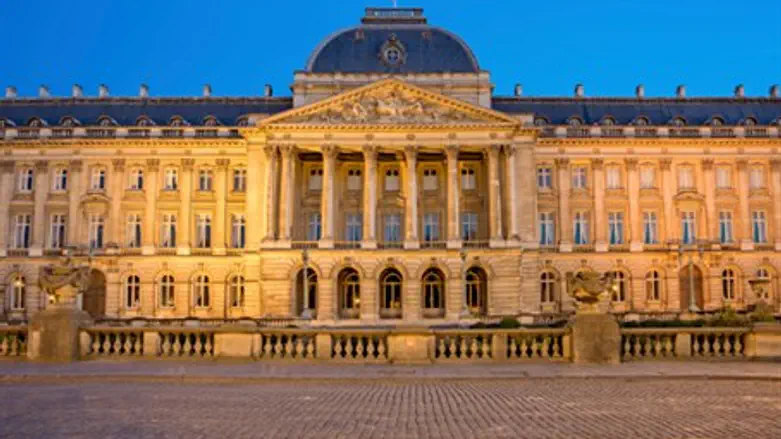
Belgians headed to the ballot box Sunday for crucial general elections clouded by what is likely the first deadly anti-Semitic attack in the country in more than 30 years.
As police boosted security to maximum level at Jewish institutions, the government moved to reassure the country's eight million voters after a Saturday afternoon attack against the Jewish Museum in Brussels that left three dead and one critically injured.
"We have no information about a possible risk for voters", said Interior Minister Joelle Milquet as police hunted for the gunman behind the fatal shooting.
First estimates are expected at the close of polling stations at 1600 GMT with forecasts predicting a tight race after an inconclusive 2010 election left the language- divided nation without a government for an unprecedented 541 days.
"The suspense is total, the outcome wide open," said political scientist Jean Faniel as surveys showed Dutch-speaking separatists from northern Flanders neck-and-neck with French-speaking Socialists in the south.
Belgium has no national political parties, with the current federal coalition government made up of groups from both sides of its invisible but very real linguistic border.
According to tradition, it will be up to King Philip to ask the leader of Sunday's winning party to form a government. It will his first election as king, having come to the throne only last year.
All eyes are on the separatist New Flemish Alliance (N-VA) led by Antwerp mayor Bart De Wever, with surveys this week showing it leading the pack in Flanders with 29.8 percent of the vote.
That is a point better than his 2010 score but well below polls just weeks ago that saw the tough-talking separatist taking the political spotlight by climbing to almost 40 percent.
"Now that the campaign is in full swing, voters are thinking and taking the election more seriously," said Jean-Michel Lebrun of the Ipsos polling institute.
Commentators say voters increasingly fear a repeat of the 2010-2011 chaos that left the nation rudderless, largely because of disputes over N-VA demands for more devolution.
New 'bow-tie' coalition?
Belgium's world-record political deadlock ended with the swearing-in of Socialist Prime Minister Di Rupo's coalition government, based on three parties from the north and three from the south.
Its unlikely mix of left, right and centre politicians brought Belgium back from the economic brink as a huge debt mountain and a ratings downgrade rattled nerves just as the eurozone economy slumped and Greece got the first of its massive international bailouts.
Known as the "bow-tie coalition" because of the premier's necktie fetish, the government has cut the budget by 22 billion euros but largely stuck to social-minded policies, avoiding the drastic austerity in vogue elsewhere in Europe.
De Wever and his Flemish nationalists fervently oppose the welfare-oriented policies of the French, however, calling instead for a swing to liberal economic policies.
In 2010, he famously called Belgium a failed state and the French-speaking Wallonia region "a junkie" addicted to subsidies.
"We are for solidarity, including financially. But if we disburse money to Wallonia, it must be done under normal conditions," he said. "This money cannot be an injection like a drug for a junkie."
In recent weeks, mainstream parties opposed to a break-up of Belgium have rejected any idea of joining an N-VA-led coalition - although analysts say such vows may be forgotten after Sunday's results.
This week's polls show Di Rupo doing slightly less well than the N-VA with 28.8 percent in southern Wallonia. That is eight points below his 2010 score as gloom over the economic crisis takes its toll on the ruling coalition, with disgruntled voters seen switching their ballots to radical left and right parties.
In what is being dubbed Belgium's "mother of all elections", voters will also be choosing more than 300 members of its regional parliaments - in Brussels, Flanders, Wallonia and the German-speaking region - as well as for the 150-seat federal assembly and 21 European Parliament members.